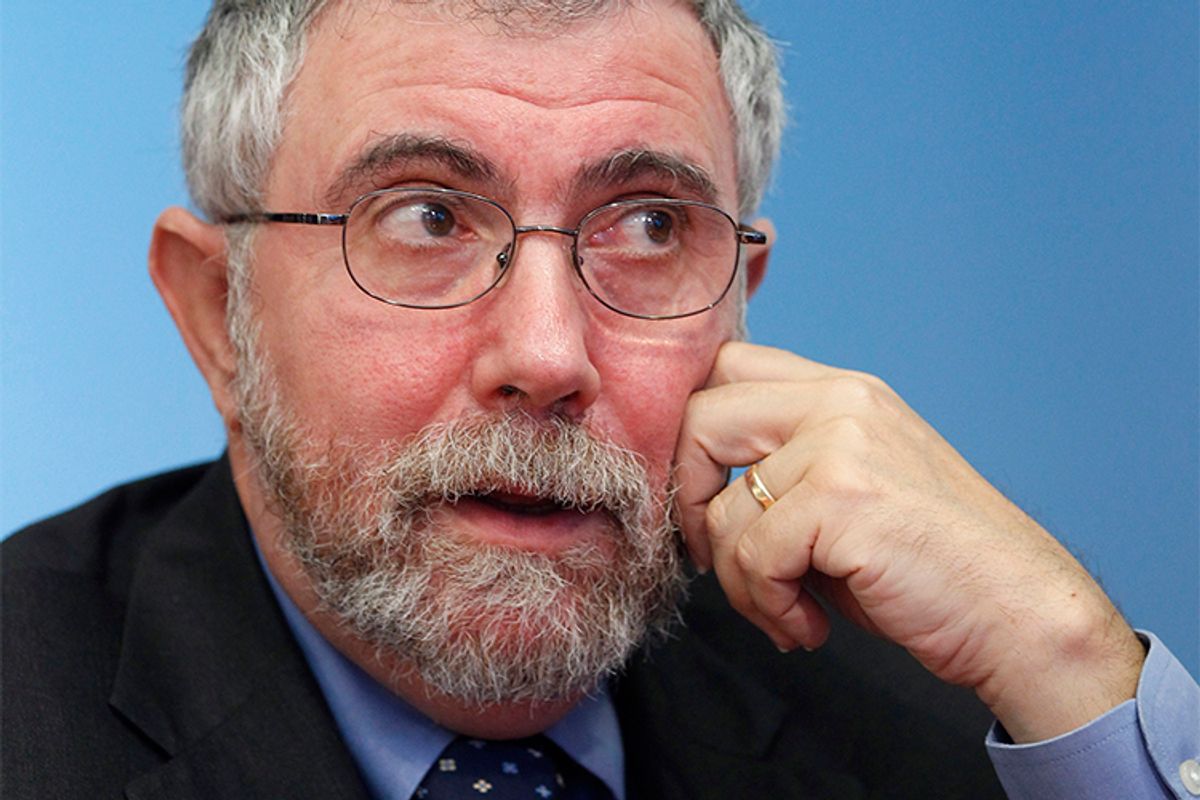Six years after the global economy reached the edge of the precipice, what have economic elites learned about policymaking?
Not much, Nobel Prize-winning economist Paul Krugman laments in his New York Times column today.
Mainstream economic scholarship tells us that the normal rules don't apply in a "rock-bottom economy," Krugman writes:
Government spending doesn’t compete with private investment — it actually promotes business spending. Central bankers, who normally cultivate an image as stern inflation-fighters, need to do the exact opposite, convincing markets and investors that they will push inflation up. “Structural reform,” which usually means making it easier to cut wages, is more likely to destroy jobs than create them.
Still, Very Serious People insisted otherwise, claiming that the most urgent threat confronting the country was the federal budget deficit, demanding sharp cuts in interest rates lest hyperinflation begin at any moment, and championing a belt-tightening austerity regime. As Krugman points out, some policymakers -- including at the European Central Bank -- heeded this disastrous advice, and the continent hasn't recovered since.
And don't be fooled by indicators that suggest the global economy is -- if not out of the woods -- slowly emerging, Krugman cautions:
It’s true that with the U.S. unemployment rate dropping, most analysts expect the Fed to raise interest rates sometime next year. But inflation is low, wages are weak, and the Fed seems to realize that raising rates too soon would be disastrous. Meanwhile, Europe looks further than ever from economic liftoff, while Japan is still struggling to escape from deflation. Oh, and China, which is starting to remind some of us of Japan in the late 1980s, could join the rock-bottom club sooner than you think.
So the counterintuitive realities of economic policy at the zero lower bound are likely to remain relevant for a long time to come, which makes it crucial that influential people understand those realities. Unfortunately, too many still don’t; one of the most striking aspects of economic debate in recent years has been the extent to which those whose economic doctrines have failed the reality test refuse to admit error, let alone learn from it. The intellectual leaders of the new majority in Congress still insist that we’re living in an Ayn Rand novel; German officials still insist that the problem is that debtors haven’t suffered enough.
This bodes ill for the future. What people in power don’t know, or worse what they think they know but isn’t so, can very definitely hurt us.

Shares